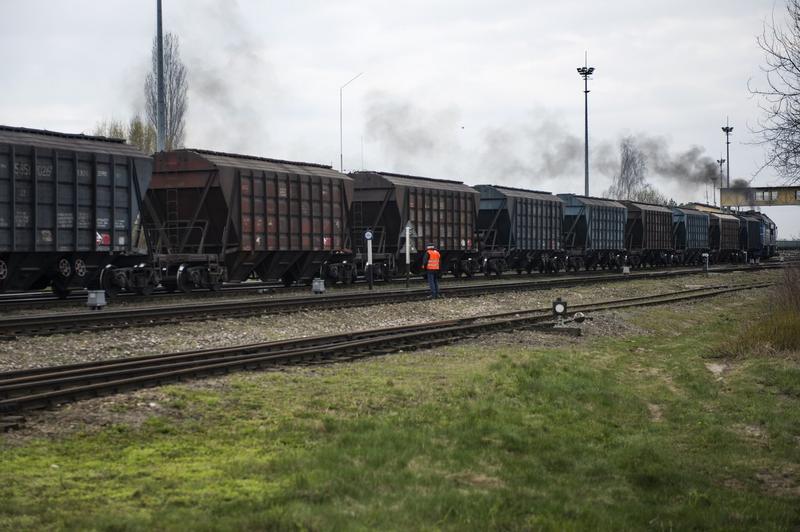Warsaw and Kiev announced on Tuesday a decision involving Lithuania that will allow the acceleration of the transit of Ukrainian grain to other countries, the first agreement between the two countries since the announcement, last month, of the Polish embargo on imports.
Grain transportPhoto: Attila Husejnow/SOPA Images / Shutterstock Editorial / Profimedia
“We have agreed on an important issue,” Polish Agriculture Minister Robert Telus told the media after an online tripartite meeting, reports AFP and Agerpres.
“Starting from tomorrow (Wednesday – nr), checks (that were to be carried out – nr) at the Ukrainian-Polish border for grain transiting Lithuania will be carried out on Lithuanian territory, in a Lithuanian port,” he specified.
“Lithuania takes full responsibility for these inspections,” said the Polish minister.
Telus also assured that Poland will continue to create transit corridors, “because it is good for Polish farmers, for Ukraine, for the European Union and for the whole world, because grain from Ukraine should be transported to the regions that need it.” “.
This is the first agreement between Poland and Ukraine since the beginning of a diplomatic crisis between the two countries, caused by the Polish embargo on Ukrainian grain imports. Warsaw has indicated that it wants to protect its market and farmers against the collapse of the prices of these products.
The transit of Ukrainian grain through Poland to other countries remained permitted.
According to the Ukrainian Ministry of Agriculture, Tuesday’s decision “will speed up transit through Poland.”
In a statement, the ministry also specified that Warsaw and Vilnius “support such a control mechanism and consider it a constructive step”.
How the embargo on Ukrainian grain imports came to be
Since the launch, in February 2022, of the Russian offensive in Ukraine, which prevents access to the Black Sea, Ukraine’s neighboring countries have become essential for the transit of Ukrainian grain to Africa and the Middle East.
Ukraine’s neighbors faced an influx of grain after the European Union raised tariffs in May 2022. Instead of reaching their intended destinations, the grain remained in Central Europe due to logistical problems, massive fraud and a lack of oversight.
Following the saturation of silos and the collapse of local prices, several countries concerned therefore decreed a unilateral embargo in the spring.
Brussels officially approved these restrictions, temporarily and subject to maintaining the passage of grain to other destinations.
But the agreement expired in mid-September and the European Commission decided not to renew it. Instead, Kiev promised measures to better control its export flows.
Hungary, Poland and Slovakia responded by extending the embargo, prompting Ukraine to file a complaint with the WTO.
The embargo caused a crisis in the relations between Kyiv and Warsaw. Negotiations on the possibility of authorizing Ukrainian grain imports to Poland have been initiated, but progress is slow.
In late September, Ukrainian Foreign Minister Dmytro Kuleba said that neither Ukraine nor Poland “need this grain war”, saying tensions were fueled by the campaign for the October 15 general election in the neighboring country and his ally.
____



